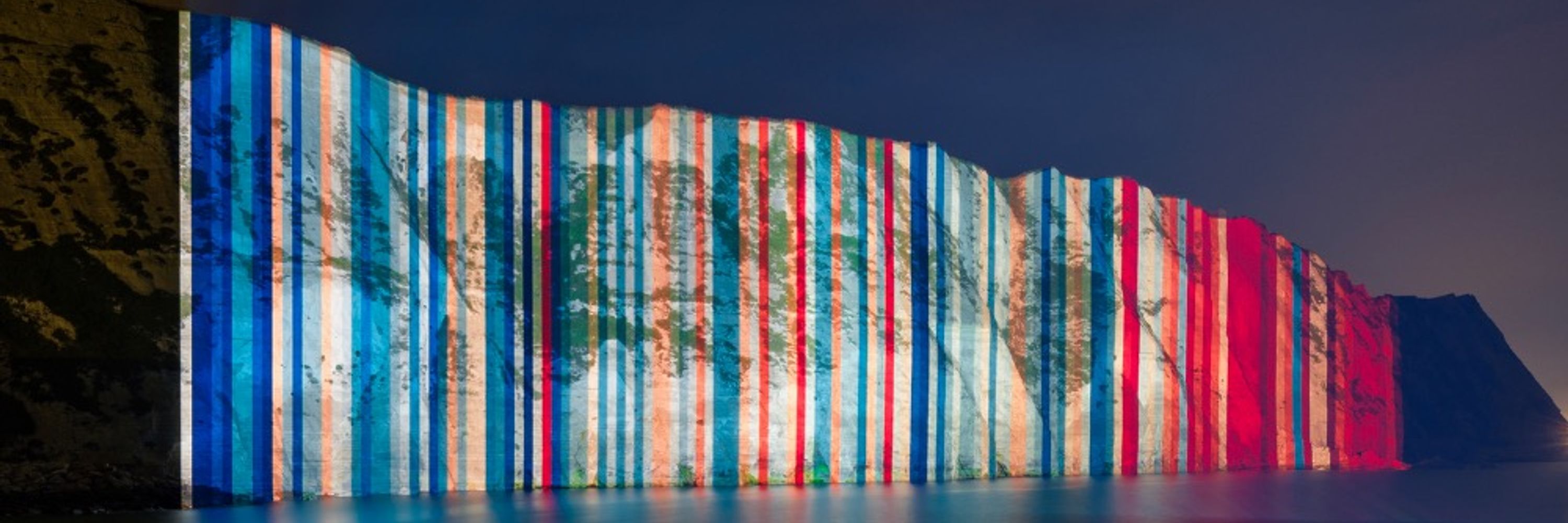
Ed Hawkins
@edhawkins.org
Climate scientist at the National Centre for Atmospheric Science, University of Reading | IPCC AR6 Lead Author | MBE | Views own | https://edhawkins.org
Warming Stripes: http://www.ShowYourStripes.info
Warming Stripes: http://www.ShowYourStripes.info
I think 1750 would be ideal but starting in 1800 would include simulation of the major volcanic eruptions which is important for post-1850 climate. When we suggested these ideas for CMIP7 the modelling centres saw the value but were not keen on spending (limited) computational resources on this.
November 7, 2025 at 7:50 AM
I think 1750 would be ideal but starting in 1800 would include simulation of the major volcanic eruptions which is important for post-1850 climate. When we suggested these ideas for CMIP7 the modelling centres saw the value but were not keen on spending (limited) computational resources on this.
We performed parallel simulations using 1750 and 1850 frameworks.
When starting in 1750, the simulated climate for lengthy periods after 1850 is different from simulations started in 1850, even with the same radiative forcings.
This is mainly because of volcanoes & land use changes before 1850.
When starting in 1750, the simulated climate for lengthy periods after 1850 is different from simulations started in 1850, even with the same radiative forcings.
This is mainly because of volcanoes & land use changes before 1850.
November 6, 2025 at 4:19 PM
We performed parallel simulations using 1750 and 1850 frameworks.
When starting in 1750, the simulated climate for lengthy periods after 1850 is different from simulations started in 1850, even with the same radiative forcings.
This is mainly because of volcanoes & land use changes before 1850.
When starting in 1750, the simulated climate for lengthy periods after 1850 is different from simulations started in 1850, even with the same radiative forcings.
This is mainly because of volcanoes & land use changes before 1850.
Might you want to be a volunteer rainfall observer and contribute to the ongoing monitoring of UK climate?
www.climate-lab-book.ac.uk/2020/wanted-...
www.climate-lab-book.ac.uk/2020/wanted-...
WANTED: rainfall observers | Climate Lab Book
www.climate-lab-book.ac.uk
October 23, 2025 at 6:36 PM
Might you want to be a volunteer rainfall observer and contribute to the ongoing monitoring of UK climate?
www.climate-lab-book.ac.uk/2020/wanted-...
www.climate-lab-book.ac.uk/2020/wanted-...
Can’t possibly be as interesting as a discussion of Stephenson Screens, 5-inch copper rain gauges and 150-year old pieces of paper with hand written numbers on.
October 23, 2025 at 6:11 PM
Can’t possibly be as interesting as a discussion of Stephenson Screens, 5-inch copper rain gauges and 150-year old pieces of paper with hand written numbers on.
Wonder if @leohickman.carbonbrief.org knows?
October 23, 2025 at 2:48 PM
Wonder if @leohickman.carbonbrief.org knows?
Reposted by Ed Hawkins
Data rescue, often by digitizing old paper records, is one of the ways that climate science research improves our understanding of the recent past.
It's hard to know how much useful data is still hiding in unremarkable paper volumes in a government warehouse somewhere.
It's hard to know how much useful data is still hiding in unremarkable paper volumes in a government warehouse somewhere.
October 22, 2025 at 10:43 AM
Data rescue, often by digitizing old paper records, is one of the ways that climate science research improves our understanding of the recent past.
It's hard to know how much useful data is still hiding in unremarkable paper volumes in a government warehouse somewhere.
It's hard to know how much useful data is still hiding in unremarkable paper volumes in a government warehouse somewhere.
I estimate >1 billion daily or sub-daily observations in Met Office archives alone. This includes air temperature, pressure, rainfall, sunshine, cloudiness, winds etc on land and sea.
October 22, 2025 at 2:06 PM
I estimate >1 billion daily or sub-daily observations in Met Office archives alone. This includes air temperature, pressure, rainfall, sunshine, cloudiness, winds etc on land and sea.
Congratulations Gavin - very well deserved!
October 18, 2025 at 7:45 AM
Congratulations Gavin - very well deserved!
We are experimenting with AI too, e.g. climatelabbook.substack.com/p/data-rescu... but for handwriting the volunteers are (at the moment) still more accurate, and that reduces the manual QC required. Lots of typeset sheets for the AI tools to rescue first while they improve further.

Data Rescue with AI
Google Gemini has changed the game
climatelabbook.substack.com
October 16, 2025 at 4:02 PM
We are experimenting with AI too, e.g. climatelabbook.substack.com/p/data-rescu... but for handwriting the volunteers are (at the moment) still more accurate, and that reduces the manual QC required. Lots of typeset sheets for the AI tools to rescue first while they improve further.

